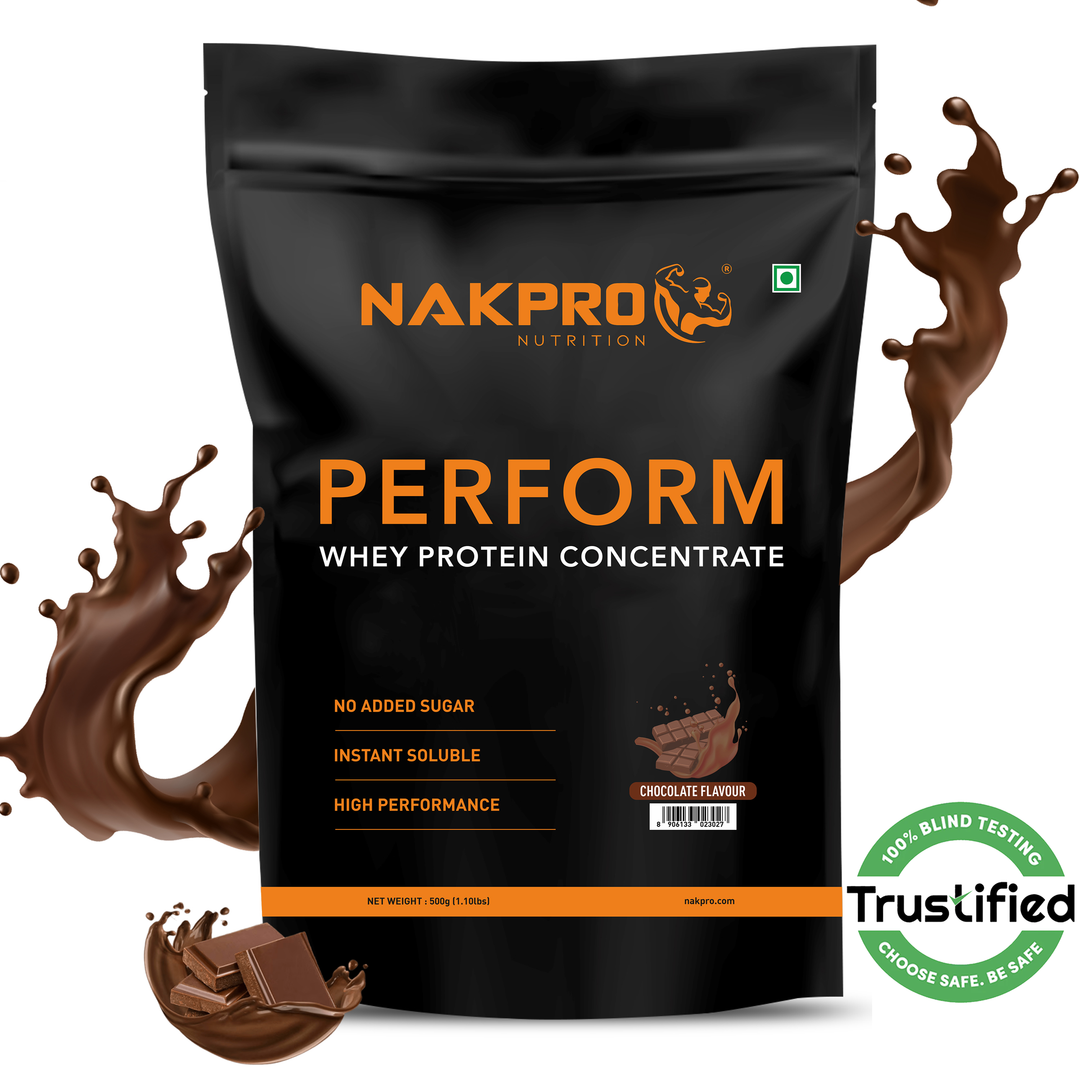What is Whey Protein Concentrate?
Whey Protein Concentrate (WPC) is a high-quality protein derived from milk during the cheese-making process. It is a complete protein, meaning it contains all nine essential amino acids required for the body. WPC typically contains 70-80% protein by weight, with the balance made up of fats, lactose, and minerals. This makes it a rich and balanced protein source for muscle growth and recovery.
Benefits of Whey Protein Concentrate:
- High-Quality Protein Source: WPC provides all nine essential amino acids and is rich in BCAAs, especially leucine, which supports muscle protein synthesis.
- Supports Muscle Growth & Recovery: The high amino acid content helps in muscle repair and growth, making it ideal for post-workout nutrition.
- Boosts Strength & Performance: Regular consumption with exercise enhances muscle strength and endurance.
- Helps in Weight Management: Whey protein promotes satiety, reduces cravings, and aids in fat loss while preserving lean muscle mass.
- Supports Immune Function: Contains bioactive compounds like lactoferrin and immunoglobulins that strengthen immunity.
Best Whey Protein Concentrate by Nakpro:
Nakpro offers premium-quality whey protein concentrate to support your fitness goals.
- Gold Plus Whey Protein Concentrate (1kg | 29 Servings | Scoop Size: 35g)
25g Protein | 11.9g EAA | 5.5g BCAA - Perform Whey Protein Concentrate (1kg | 27 Servings | Scoop Size: 37g)
26g Protein | 11g EAA | 5.7g BCAA - Perform Plus Whey Protein Concentrate (1kg | 27 Servings | Scoop Size: 37g)
24g Protein | 13g EAA | 5.3g BCAA
Why Buy Nakpro Whey Protein Concentrate Online?
- High-Quality Whey Protein: Sourced from premium ingredients and rigorously tested for safety and effectiveness.
- High Protein Content: Delivers 24-26g of protein per serving to support muscle growth and recovery.
- Affordable Pricing: Get the best whey protein concentrate at competitive prices without compromising on quality.
- Lab Tested & Certified: Nakpro products are tested for purity and authenticity to ensure you get the best.
Buy the Best Affordable Whey Protein Concentrate Online
Looking for high-quality whey protein concentrate at the best price? Nakpro offers premium whey protein concentrate under ₹2000, providing the best nutrition for muscle growth, recovery, and overall fitness.
- Gold Plus Whey Protein Concentrate (1kg | 29 Servings | Scoop Size: 35g)
- Perform Whey Protein Concentrate (1kg | 27 Servings | Scoop Size: 37g)
- Perform Plus Whey Protein Concentrate (1kg | 27 Servings | Scoop Size: 37g)
Whey Protein Concentrate Prices In India
| Products | Price (1kg) |
|---|---|
| Whey Gold Plus | 1999/- |
| Whey Perform | 1599/- |
| Beginner's Whey | 799/- |
| Perform Plus | 1649/- |
Frequently Asked Questions:

